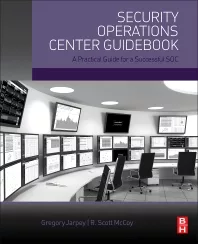Compliance Executives Nervous as Regulatory Climate Shifts
DOJ and SEC statements driving CCO concerns over changes in compliance regulations and scrutiny
Eighty-one percent of compliance officers have increased apprehension when it comes to their personal liability in situations of corporate misconduct, according to a new survey released by law firm DLA Piper. This uneasy adjustment stems from shifts in tone from Washington, DC, including the appointment of Hui Chen as the Justice Department’s first compliance counsel, and the release of the Yates Memo outlining a plan to prosecute individual corporate employees and incentivize reforms, according to the 2016 Compliance Risk Report: CCOs Under Scrutiny.
“Between the DOJ’s memorandum and the SEC’s latest initiatives, there’s considerable rhetoric driving the government’s renewed focus on corporate misconduct and the prosecution of company executives,” says Brett Ingerman, co-chair of DLA Piper’s Global Governance and Compliance practice, in a DLA Piper press release. “The most revelatory parts of this survey lie in the specific feedback from compliance officers who are facing increased personal accountability for organizational misdeeds whether they perpetrated the wrongdoing or not.”
The majority of survey respondents predicted greater scrutiny with Hui Chen in her new position, and nearly two-thirds said that increased federal oversight would impact their decisions to remain or accept positions as compliance officers. Nearly a quarter of respondents don’t believe they have adequate resources to address emerging issues, the survey says.
Additional results of the survey include:
- 81 percent of respondents are at least somewhat concerned with increased liability under the new regulatory climate.
- 65 percent of respondents said the public statements made by the SEC and DOJ have given them pause when considering current and future CCO roles which could impact the pool of candidates.
- 77 percent of respondents believe the DOJ’s Hui Chen will intensify the pursuit of cases against CCOs, and 99 percent said they expect her to intensify scrutiny of compliance programs overall.
- Cybersecurity, data privacy and regulatory risk (Dodd-Frank, ACA and FCPA) were survey respondents’ great compliance concerns, and their spending tracked closely with those areas. 77 percent say they have business continuity and disaster recovery programs and crisis response teams in place, and 66 percent indicated that monitoring was the weakest area of their compliance program.
- When assessing resources, cloud and board access to best perform their jobs, only a third of respondents said they had such support “to a great extent.” Additionally, 28 percent don’t think they have a sufficient budget, and 27 percent don’t know if they do or not.
To read the full report, please visit www.dlapiper.com/compliance_survey
Looking for a reprint of this article?
From high-res PDFs to custom plaques, order your copy today!




.webp?height=200&t=1733511628&width=200)

